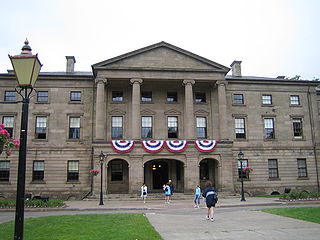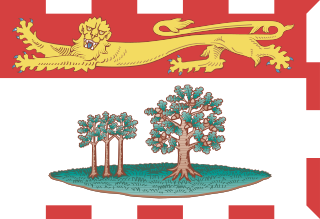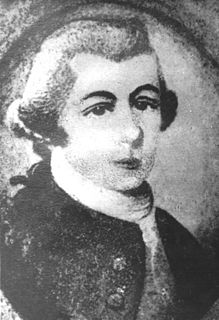
Events from the year 1938 in Canada.

Events from the year 1886 in Canada.

The Legislative Assembly of Prince Edward Island, along with the Queen of Canada in Right of Prince Edward Island, represented by the Lieutenant-Governor of Prince Edward Island, forms the parliament of the province. The General Assembly meets at Province House, which is located at the intersection of Richmond and Great George Streets in Charlottetown.

The Lieutenant Governor of Prince Edward Island is the viceregal representative in Prince Edward Island of the Canadian monarch, Queen Elizabeth II, who operates distinctly within the province but is also shared equally with the ten other jurisdictions of Canada, as well as the other Commonwealth realms and any subdivisions thereof, and resides predominantly in her oldest realm, the United Kingdom. The Lieutenant Governor of Prince Edward Island is appointed in the same manner as the other provincial viceroys in Canada and is similarly tasked with carrying out most of the monarch's constitutional and ceremonial duties.

The General Assembly of Prince Edward Island is the legislature of the province of Prince Edward Island, Canada. Today, the legislature is made of two elements: the Lieutenant Governor of Prince Edward Island, and the unicameral assembly called the Legislative Assembly of Prince Edward Island. The legislature was first established in 1773.
The 22nd General Assembly of Prince Edward Island represented the colony of Prince Edward Island between March 3, 1863, and 1867.
The 21st General Assembly of Prince Edward Island represented the colony of Prince Edward Island between April 12, 1859, and 1863. An elected assembly had been dissolved by the governor earlier in 1859 because it could not choose a speaker.
The 19th General Assembly of Prince Edward Island represented the colony of Prince Edward Island between February 9, 1854, and May 10, 1854.
The 18th General Assembly of Prince Edward Island represented the colony of Prince Edward Island between March 5, 1850, and 1854.
The 13th General Assembly of Prince Edward Island represented the colony of Prince Edward Island between February 3, 1831, and 1835.
The 12th General Assembly of Prince Edward Island represented the colony of Prince Edward Island between January 14, 1825, and 1831.
The 3rd General Assembly of the Island of St. John represented the colony of Prince Edward Island, then known as St. John's Island, between 1779 and January 1784.
The 1st General Assembly of the Island of St. John represented the colony of Prince Edward Island, then known as St. John's Island, between July 7, 1773, and 1774.
The 2nd General Assembly of the Island of St. John represented the colony of Prince Edward Island, then known as St. John's Island, between October 4, 1774, and 1779.
John Brecken was an English-born United Empire Loyalist, merchant and political figure. He was a member of the Legislative Assembly of Prince Edward Island from 1785 to 1787.
Phillips Callbeck was a merchant, lawyer and political figure in St. John's Island. He served as administrator for the island from 1775 to 1780.
Benjamin Chappell was a machinist and political figure in Prince Edward Island. He was a member of the Legislative Assembly of Prince Edward Island from 1774 to 1784.
Joseph Aplin was a lawyer and political figure in colonial Nova Scotia and Prince Edward Island. He represented Barrington township in the Nova Scotia House of Assembly from 1785 to 1787.
John Stewart was a Scottish-born army officer and political figure on Prince Edward Island. He served in the Legislative Assembly of Prince Edward Island from 1787 to 1801 and from 1824 to 1831.





